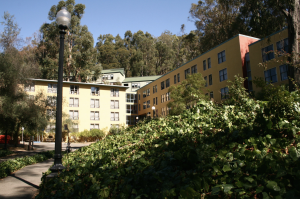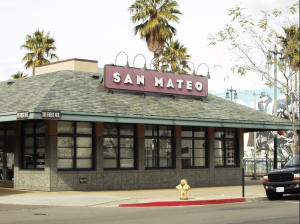By Rodrigo Martinez
T
here has been a shift in the infrastructure being built in many Riverside County cities due to the vast amount of land offered at an extremely affordable prices. Mead Valley is a small, unincorporated town that falls in between three major cities: Perris, Riverside, and Moreno Valley. The demographic makeup of Mead Valley residents is primarily low-income families, many undocumented individuals, and high crime rates. Armed with this information, we see a targeting approach by major companies that are coming into these major cities seeking workers who will fulfill jobs that do not require any education beyond a high school diploma.
Riverside County is ranked second in the nation in the construction of megawarehouses, trailing just behind Philadelphia with 13 warehouses that stretch a staggering 15.4 million square feet. Companies such as Amazon, Erlanger, Walgreens, and Loews, among others, decided to locate to these cities because they provide access to the top three major forms of product transportation: roads, railroads, and shipping ports. These facilities are valuable because of the state-of-the-art technology offered; additionally, roughly twenty million people within reasonable proximity of these e-commerce warehouses are seeking employment. It all adds up perfectly for these companies. Many corporations believe that it boosts our local economy by bringing in employment opportunities; conversely, others argue that it is too good to be true and that someone must be paying the price.
There is a strong connection the current circumstances of the warehouses in Riverside County, California, with those in Maquiladoras, Mexico. Despite the industry and company differences, both take advantage of their workers. The foreign companies using Mexican territory to increase value to their product did so by abusing their workers. They capitalized on the fact that people residing near their warehouses would seek employment opportunities from their companies due to the disparity of jobs prior to their arrival. Not only are these workers exploited with low wages, but they are dually wronged through the exposure to harmful chemicals both during their shifts and in the neighboring towns surrounding the warehouses.
With this understanding of the working conditions of workers in Maquiladoras, the parallels between them and workers in Riverside County become more apparent. Most of the workers being recruited by these companies are young adults who have finished high school and live in a low-income area. They are provided minimum wage — $11.00 in Riverside County — without benefits because the majority of their positions part-time or seasonal. The majority of these warehouses are distribution centers, which entails that most of the workers are subjected to labor on their feet for the majority of their shift while lifting heavy products from point A to point B. For example, an Amazon employee is expected to locate a product under a certain amount of time in order to stay on track with their shipment status, but this means the employee is under the constant duress of a ticking clock. Stress from work compounds stress from their household, which includes paying bills on time, ensuring food is on the table, and maintaining emotional stability for their family members. Employees pay a huge price when they join these companies, but most make these sacrifices because it is the only option they have available.
In addition to the health concerns engendered by these warehouses, many residents are concerned with the development because of the resulting noise, traffic, and pollution. Riverside among the most polluted regions in the U.S. in terms of its air quality, worsened by the ever-increasing number of warehouses in the area. Unfortunately, in the cases of many unincorporated areas, there is no government mechanism in place to effectively represent the residents’ concerns. Moreover, these factories are being built in communities that have a larger minority population where companies can multiply their profitability with low wages.
The corporate undertaking of Riverside County by way of warehouses is promoting a practice of systematic racism and is creating harmful effects for the communities that reside around them. Not only are families of color being targeted, but they are experiencing the negative effects both inside and outside of their work place.
Works Consulted
- Atley, Richard K. De. “Major Growth Turns Inland Area to Mega-Warehouse Empire.” Press Enterprise, Press Enterprise, 21 Feb. 2017, www.pe.com/2017/02/21/major-growth-turns-inland-area-to-mega-warehouse-empire/.
- “This Inland Empire Community Says Enough with the Warehouses.” Next City, nextcity.org/daily/entry/this-inland-empire-community-says-enough-with-the-warehouses.
- “U.S. Census Bureau QuickFacts: Riverside County, California.” Census Bureau QuickFacts, www.census.gov/quickfacts/riversidecountycalifornia.








Be First to Comment